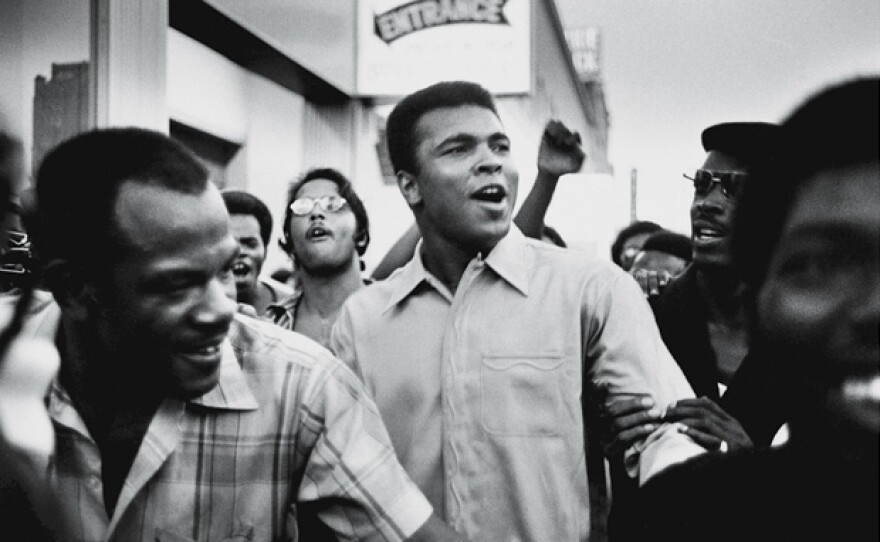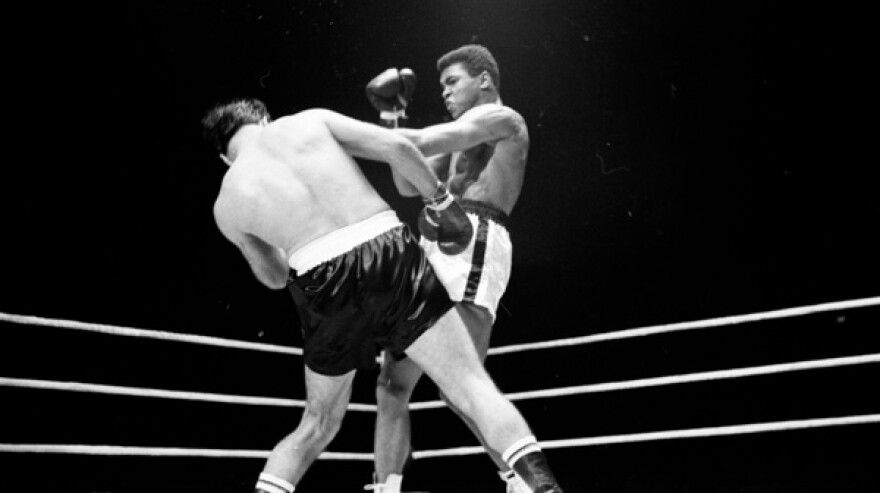"The Trials Of Muhammad Ali" explores the extraordinary and complex life of the legendary athlete outside the boxing ring. From joining the controversial Nation of Islam and changing his name from Cassius Clay to Muhammad Ali to his refusal to serve in the Vietnam War to protest racial inequality and to his global humanitarian work, Muhammad Ali remains an inspiring and controversial figure.
Outspoken and passionate in his beliefs, Ali found himself in the crosshairs of conflicts concerning race, religion and wartime dissent.
Directed by Academy Award-nominated director Bill Siegel, "The Trials Of Muhammad Ali" examines how one of the most celebrated sports champions of the 20th century risked fame and fortune to follow his faith and conscience.
Focusing on some of the most noteworthy, provocative and resonant aspects of the legendary athlete’s life, this film explores his lifelong journey of spiritual transformation. From his Louisville roots through his years in exile to receiving the Presidential Medal of Freedom, Ali’s path was that of poet to pariah to global ambassador for peace.
In 1964, when the 22-year-old Olympic gold medalist won his first heavyweight championship, he shouted, “I shook up the world!” But his earthshaking had only just begun. Soon he announced he had become a Muslim and a member of the Nation of Islam with a new name: Muhammad Ali.
Drafted to fight in the Vietnam War, he made his defining expression of resistance: “No, I will not go 10,000 miles to continue the domination of white slave masters over the darker people of the earth.”
In 1967, after he was denied conscientious objector status, Ali refused military induction. Convicted of draft evasion, he was sentenced to five years in prison and his passport was revoked. Stripped of his title and banned from boxing, Ali faced an American public enraged by his opposition to the Vietnam War and unwilling to accept his conversion to Islam.
Although vilified in many corners at home, he became an international symbol of opposition to an unjust war. Filing round after round of legal appeals all the way to the Supreme Court, he supported his family through a speaking tour across a country divided over the war abroad and racism at home.
Rare and riveting archival footage of Ali’s fiery speeches on college campuses and fierce exchanges during TV appearances show him fearlessly speaking his mind as he fights for freedom.
Archival scenes highlight the forces that supported and opposed him, including his spiritual mentors, Malcolm X and Elijah Muhammad, and critics of his stance, such as Jackie Robinson and Joe Louis. Most of the interviewees have never been featured in any Ali film before, yet are central to his life story and his global impact.
Interviews shot exclusively for the film include his brother, Rahman; his former wife, Khalilah Camacho-Ali; New York Times writer Robert Lipsyte; and Nation of Islam leader Louis Farrakhan. What emerges is the hidden history of Muhammad Ali.
Related Article
Muhammad Ali Dies at 74: Titan of Boxing and the 20th Century by Robert Lipsyte, New York Times
(with video)
Watch On Your Schedule:
This film is available on demand with KPBS Passport, a benefit for members supporting KPBS at $60 or more yearly using your computer, smartphone, tablet, Roku, AppleTV, Amazon Fire or Chromecast. Learn how to activate your benefit now.
Join The Conversation:
INDEPENDENT LENS is on Facebook, Instagram, and you can follow @IndependentLens on Twitter. #IndieLensPBS












